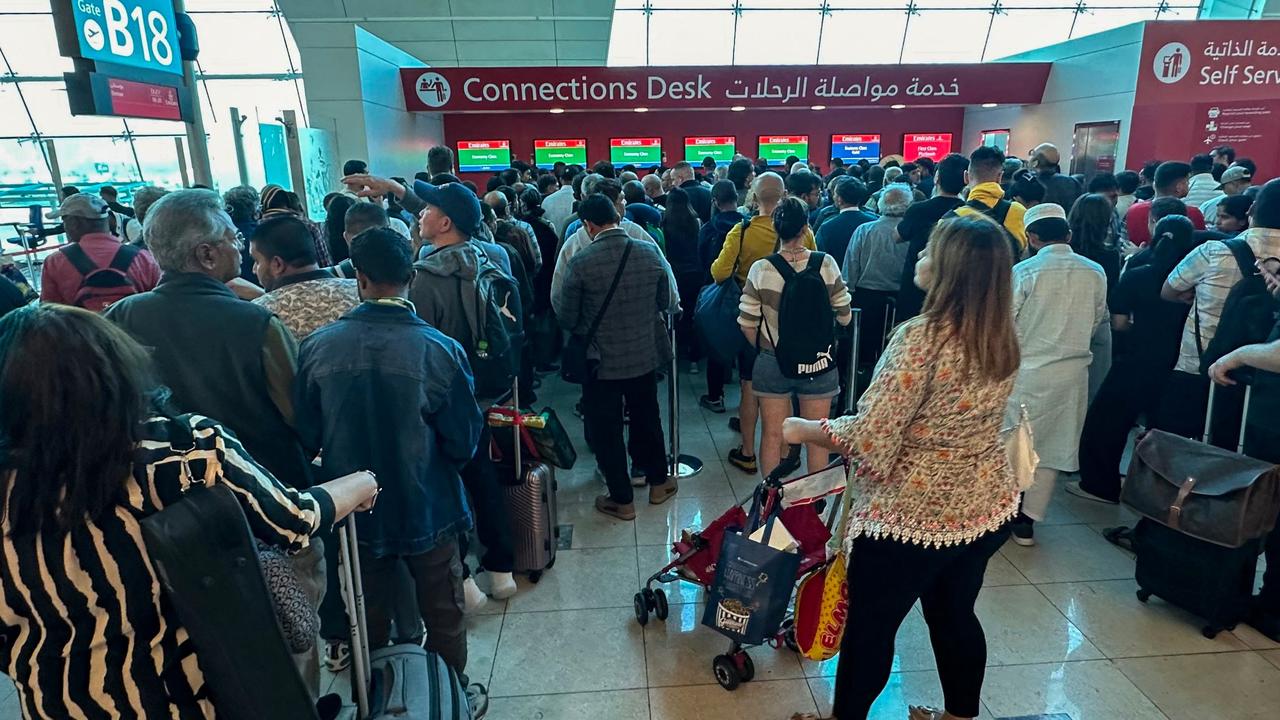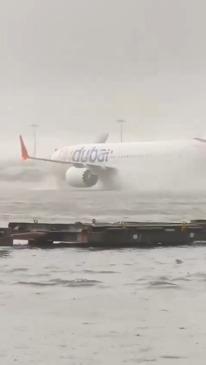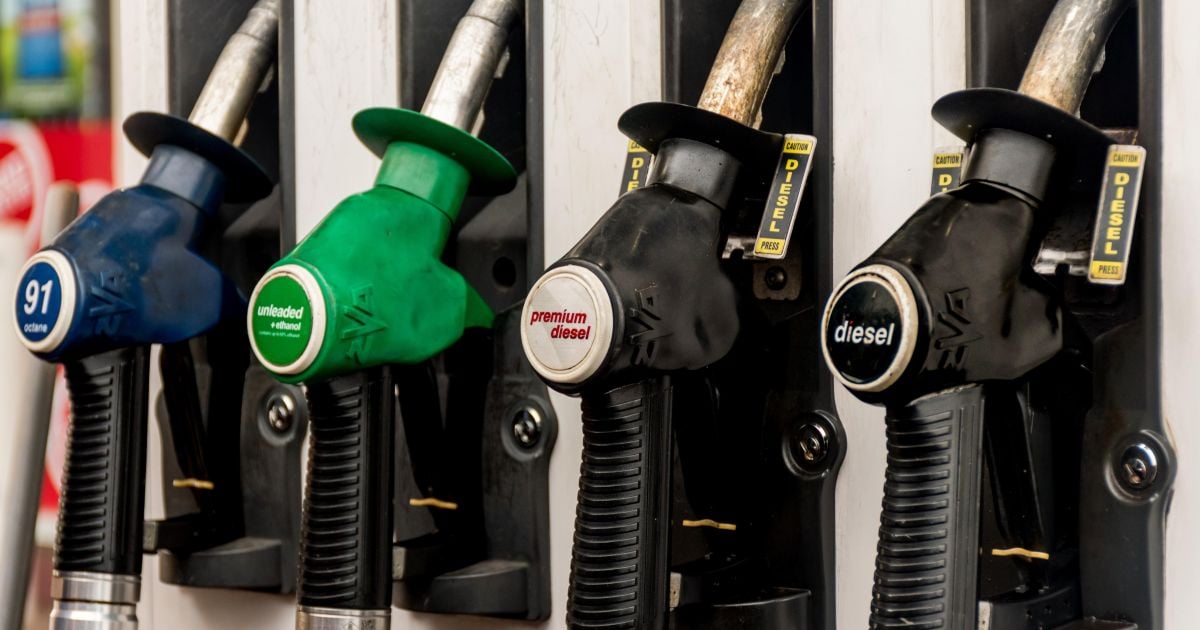Chaos inside Dubai airport

- by Admin
- April 19, 2024

One of the world’s busiest airports has been thrown into chaos as the United Arab Emirates recovers from a freak storm that dumped a year and half’s rain in just a few hours.
At least 20 people have died in the intense weather event from earlier this week that also affected Oman.
Streets were flooded causing traffic gridlock, buildings were damaged and shops and business were forced to close in the Gulf states.
Amid the chaos, air travel was heavily affected, particularly at Dubai International Airport, the world’s second busiest air hub and the home of Emirates, which has multiple daily departures to Australia.
That airport’s operator declared it was facing “very challenging conditions”, with startling images of its runways underwater.
On Friday at 9am AEST it issued a statement that it has “temporarily limited inbound flights” until 4am local time on April 19, “due to the ongoing disruption”.
“Departures, however, will continue to operate. There is a backlog of baggage due to resource constraints, please contact your airline in case of lost baggage,” the statement read.

Travel insurance benefit
Hundreds of Aussies have been left stranded inside the airport, some reportedly facing 36 hour delays, begging the question of whether airlines will reimburse them as a result of the natural disaster.
Comparetravelinsurance.com.au diretor Natalie Ball said in short that answer is “no”.
“Under the current circumstances, airlines are not necessarily obliged to compensate affected travellers,” Ms Ball said in a statement.
“According to Emirates airlines, travellers are entitled to compensation for flight delays over three hours.
“However, this does not apply to delays caused by ‘extraordinary circumstances’.”
Ms Ball said that natural disasters, such as flash flooding, could fall under this category.
“When delays or cancellations are caused by circumstances outside of an airline’s control, they are usually not responsible for your out-of-pocket expenses,” she said.
“They may try to get you on the next flight available or offer you a flight credit, but in many scenarios this may not be sufficient.”
Ms Ball said this is where travel insurance benefits would kick in.
“This flooding event is precisely why you should buy travel insurance,” she advised.
“When unforeseen events like bad weather or natural disasters strike, you’d likely be eligible to claim for cancellation and flight delay costs, including additional accommodation if required.”
She said more often than not, cover for natural disasters and major weather are an overlooked aspect of travel insurance.
“Natural disasters point to the unpredictable nature of travel. If you are unable to proceed with your trip plans due to a major weather event, travel insurance would provide you with cancellation benefits and cover for lost deposits,” she said.
“Or if you’re stranded mid-route, you would be provided with accommodation, meal and transport expenses. However, travellers should take note of their policy’s terms.”
Ms Ball noted not all insurers provide cover for natural disasters.
“Basic, medical only and some lower priced policies may not cover trip disruption costs,” she said.
“It’s important to consider a policy that covers trip cancellation and delays. As well, insurance only covers unforeseen events; the Dubai floods are now a known incident, so if you buy a policy now, it won’t protect you from cancellations related to this incident.”
She warned travellers not to leave cover to the last minute.
“Extreme weather events can strike at any time. Always pack travel insurance well in advance of your trip to mitigate your risks. When in doubt, remember these wise words from Smartraveller.gov.au; ‘If you can’t afford travel insurance, you can’t afford to travel!”
Aussies stranded
According to Seven News, hundreds of Australians have become stranded in Dubai airport.
One passenger flying with Emirates told news.com.au they spent 36 hours at the airport before eventually being able to get on a flight via Qantas, home to Sydney.
Meanwhile, another Aussie passenger had his plane circle Dubai for an hour, before being diverted to nearby Al Maktoum International Airport, where they were forced to wait seated on the plane for five hours.
The man from Victoria was travelling from Melbourne to Malta Via Dubai on an Emirates flight on April 16.
After finally getting the all-clear to fly the 20 minutes to Dubai, the passengers were again held on the plane for a further five-and-a-half hours without explanation, according to 7News.
After having spent more than 23 hours on the plane in total, they were eventually able to disembark.
They were offered free accommodation, transport and food vouchers but the man was able to leave the airport ad stay with a friend who lives in Dubai after trying his luck at an immigration desk.
Others haven’t been so lucky with many still stranded inside the airport, some even reporting a lack of food.
“Terminal 1: Food has been distributed with more on the way,” the airport said in a statement. on Thursday. “Terminal 2: Food is currently being distributed. Terminal 3: Restaurants are open and accepting meal vouchers.”
Worst rain for 75 years
The UAE’s National Centre for Meteorology said 255mm of rain came down in 24 hours on Tuesday near Al Ain, on the Oman border.
With the UAE averaging between 140mm and 200mm of rain each year, that amount far exceeds the annual usual total.
Oman said it had received its worst rain for 75 years. In the nation, south and east of the UAE, 19 people have died from the floods. One person died in the UAE itself.
The Latest News
-
November 21, 2024DP World Tour rookie hit with costly slow-play penalty in pro debut – Australian Golf Digest
-
November 21, 2024After Finishing Second in Back-to-Back Seasons, Jeeno Thitikul Captures 2024 Aon Risk Reward Challenge Title – Australian Golf Digest
-
November 21, 2024More cash than God and Bezos: Whatever the BCCI wants, Australian cricket must give them
-
November 21, 2024BetPokies.org partners with Platipus to get to the Australian audience
-
November 21, 2024Max Homa delivers his best swing roast yet in response to this three-time Super Bowl champ – Australian Golf Digest





